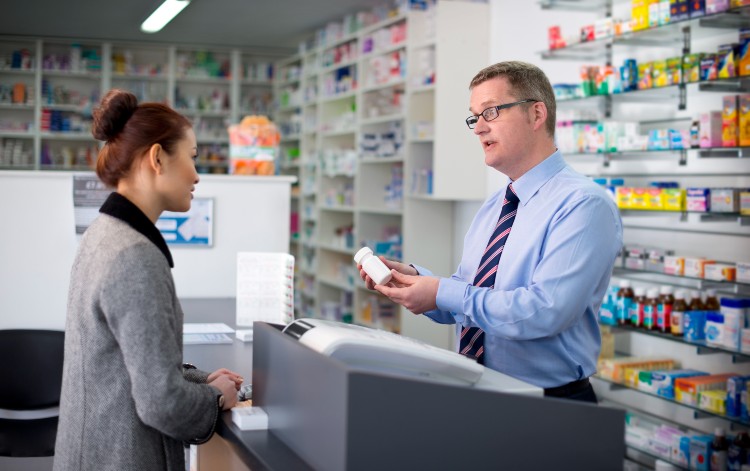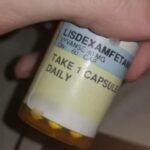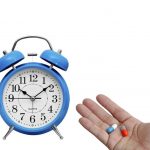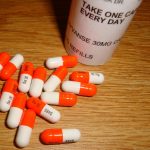What Happens When You Take Vyvanse (Lisdexamfetamine) And Alcohol?

Vyvanse (lisdexamfetamine) is a prescription medication used to treat attention deficit hyperactivity disorder (ADHD) and binge eating disorder. It is a stimulant medication that works by increasing the levels of certain chemicals in the brain that affect attention and behavior.
Here are some of the benefits of Vyvanse:
- Improved focus: Vyvanse increases the levels of certain neurotransmitters in the brain, such as dopamine and norepinephrine, which can improve focus and attention in people with ADHD.
- Reduced impulsivity: Vyvanse can also reduce impulsivity, which is a common symptom of ADHD. This can help people with ADHD to make better decisions and avoid acting without thinking.
- Increased productivity: By improving focus and reducing impulsivity, Vyvanse can help people with ADHD to be more productive and accomplish more in their daily lives.
- Improved academic or work performance: For people with ADHD who struggle with school or work, Vyvanse can help improve academic or work performance by improving focus and reducing impulsivity.
- Reduced symptoms of binge eating disorder: Vyvanse is also approved to treat binge eating disorder, a condition characterized by episodes of overeating followed by guilt and shame. Vyvanse can help reduce the frequency and severity of binge eating episodes.
- Improved quality of life: By reducing symptoms of ADHD or binge eating disorder, Vyvanse can improve the overall quality of life for people with these conditions. This can include improvements in social relationships, work or academic performance, and overall well-being.
It is important to note that Vyvanse may not be effective for everyone with ADHD or binge eating disorder and that it can have side effects.
Can I take Vyvanse and alcohol?
No, combining Vyvanse and alcohol is generally not recommended because both substances can have effects on the central nervous system, and when taken together, they can increase the risk of side effects or interactions.
Alcohol can also interfere with the effectiveness of Vyvanse, reducing its ability to improve focus and attention. Furthermore, taking Vyvanse with alcohol can lead to increased blood pressure, heart rate, and body temperature, which can be dangerous.
If you are taking Vyvanse, it is best to avoid drinking alcohol altogether. If you do decide to drink, it is important to talk to your doctor about any potential risks and to drink in moderation. It is also important to never mix Vyvanse with other drugs or medications without consulting with a healthcare professional first.
Side effects of combining Vyvanse And Alcohol
The combination of stimulant drugs like Vyvanse and alcohol is not recommended, as it can have dangerous side effects. When taken together, Vyvanse and alcohol can interact in ways that are not fully understood, but which can have serious consequences. Here are some of the potential side effects of combining Vyvanse and alcohol:
1. Increased heart rate and blood pressure: Both Vyvanse and alcohol can increase heart rate and blood pressure. When taken together, they can amplify these effects, which can be dangerous, especially for people with pre-existing heart conditions.
2. Increased risk of overdose: Taking large amounts of Vyvanse and alcohol together can increase the risk of overdose, which can be fatal. Symptoms of an overdose may include seizures, coma, and respiratory failure.
3. Liver damage: Both Vyvanse and alcohol can be hard on the liver. When taken together, they can increase the risk of liver damage, especially in people who already have liver problems.
4. Impaired judgment: Alcohol can impair judgment, and Vyvanse can increase impulsivity. Together, they can lead to risky behaviors, such as driving under the influence or engaging in unsafe sexual practices.
5. Worsened ADHD symptoms: Alcohol can make ADHD symptoms worse, and Vyvanse can mask the effects of alcohol. This can make it difficult for people to gauge how much they have had to drink and can lead to overconsumption.
6. Dehydration: Both Vyvanse and alcohol can cause dehydration. When taken together, they can increase the risk of dehydration, which can cause a range of health problems, including headaches, dizziness, and kidney damage.
7. Mood changes: Both Vyvanse and alcohol can affect mood. Vyvanse can increase anxiety and irritability, while alcohol can cause depression and mood swings. Together, they can lead to unpredictable and potentially dangerous mood changes.
8. Sleep disturbances: Vyvanse can interfere with sleep, while alcohol can initially make people feel drowsy but can later disrupt sleep patterns. When taken together, they can lead to sleep disturbances, which can have a range of negative health effects.
9. Increased risk of addiction: Both Vyvanse and alcohol can be addictive. When taken together, they can increase the risk of addiction, especially if people use them as a way to cope with stress or other problems.
10. Nausea and vomiting: Both Vyvanse and alcohol can cause nausea and vomiting. When taken together, they can increase the risk of these symptoms, which can be uncomfortable and potentially dangerous.
11. Cognitive impairment: Both Vyvanse and alcohol can cause cognitive impairment. When taken together, they can amplify these effects, which can lead to confusion, memory loss, and other cognitive problems.
12. Seizures: Both Vyvanse and alcohol can increase the risk of seizures. When taken together, they can further increase this risk, which can be life-threatening.
Overall, combining Vyvanse and alcohol is not recommended. If you are taking Vyvanse, it is important to talk to your doctor about any other medications or substances you are taking, including alcohol. If you are struggling with alcohol use, it is important to seek help from a healthcare professional or addiction specialist. You can find additional information on How Long Does Vyvanse Stay In Your System?





